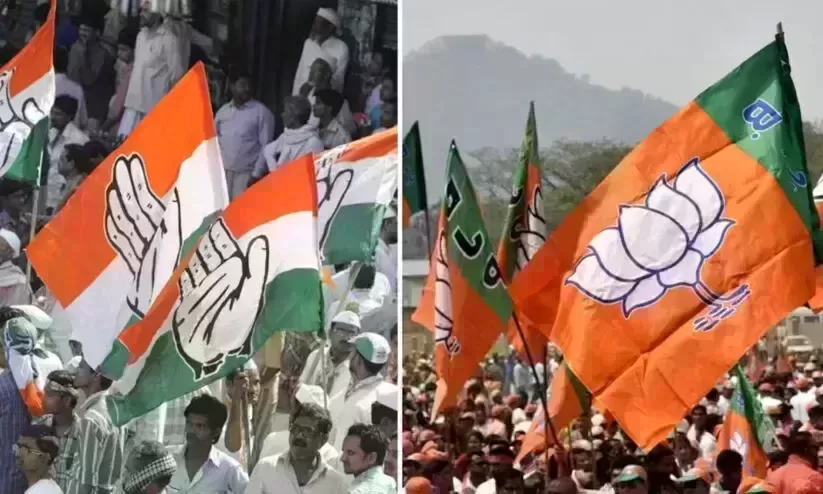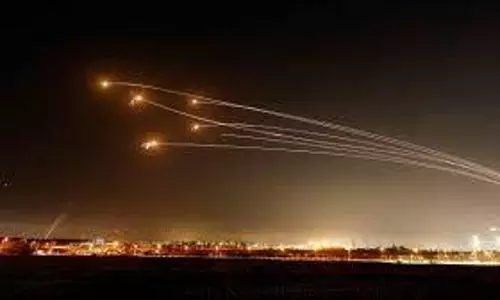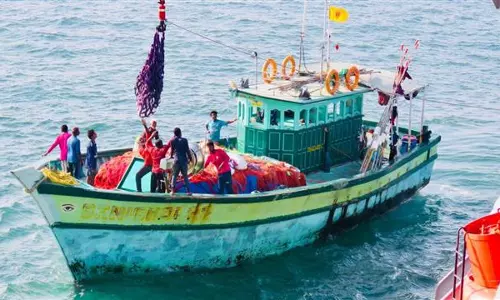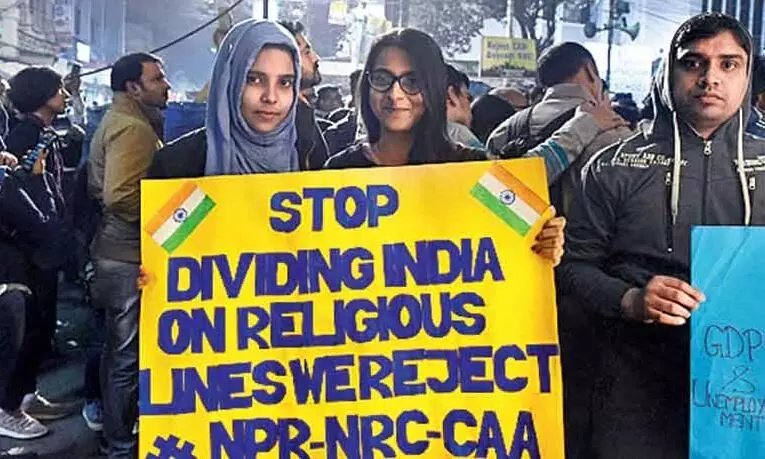
The new India of exclusion
text_fieldsThe new program of the BJP is paradoxical, as it takes away the constitutional rights of the dominant minority of Muslims in the country on the basis of religious and racial hatred, while also portraying the response against it as religious sectarianism. The rejection by Parliament of the resolution moved by the Indian Union Muslim League on February 10, calling for the implementation of the recommendations by the Sachar Committee and other fact-finding committees to address the backwardness of Muslims, and now the abolition of the four per cent reservation intended as a solution to the backwardness of Muslims in Karnataka by the BJP administration under Basavaraj Bommai, serve as evidence of this. During the motion introduced in the Rajya Sabha, member of the Muslim League P.V. Abdul Wahab pointed out that only five and a half per cent of the 14 per cent of Muslims in India are able to pursue higher education, and only 13 per cent of Muslim women have access to higher education. He thus demanded that recommendations for their empowerment be implemented. Smriti Irani, the Union Minister for Minority Affairs and Women Child Development has stated that Narendra Modi's "new India" will not be divided along religious lines, opposing the reservation of rights for Muslims as a backward community. The motion was rejected by the House through a voice vote on Friday, the same day when the BJP government in Karnataka removed the Muslim reservation and 'elevated' them as forward communities.
In 1994, during the tenure as Karnataka Chief Minister of former Prime Minister H.D. Deve Gowda, the Janata Dal government established a category of 2(B) for Muslims on the reservation list, providing them with a four per cent reservation. Investigations and suggestions for solutions regarding the backwardness of Muslims began in 1918 when Mysore was a princely state. In 1918, a commission was formed under the leadership of Justice Leslie C. Miller by the Maharaja of Mysore, Krishnaswami Wadiyar IV following the agitation by backward communities under the leadership of Praja Mitra Mandhali in 1917. Miller discovered that backward people, including Muslims, were severely underrepresented in education and government jobs and submitted recommendations for remedial measures. After India gained independence in 1961, R. Nagan Gowda chaired the Mysore Backward Classes Commission, which included Muslims in the state as a backward class.
The government attempted to implement the recommendations of this commission but had to withdraw under pressure from the upper castes. In 1975, the first Karnataka Backward Classes Commission was appointed by Congress' Devaraj Urs, which suggested treating Muslims as a backward class and providing them with reservations due to their lagging behind in government jobs on the consideration as a minority community. In 1977, the Urs government decided to provide reservations for Muslims along with other backward classes. When opposition to this came from Lingayats and other communities another commission was appointed for Lingayats. In 1983 when Ramakrishna Hegde was the Chief Minister, another commission headed by T Venkataswamy was appointed, and its recommendation was to continue Muslim reservation. But the report was put in cold storage due to opposition from the Vokkaliga and Lingayat communities whom the BJP is now trying to appease who also clamoured for reservation. In 1988, a third backward class commission was appointed under the leadership of Chinnappa Reddy. The report it submitted in 1990, also recommended including Muslims in the backward category. In 1994, Veerappa Moily's Congress government granted eligibility for category Ttwo to Muslims in the reservation list based on the recommendations of the 1990 report.
Since this Category-2 had other communities also, the Deve Gowda government separated the categories into A and B in 1994 and included Muslims in the 'B' category, providing them with 4% reservation, while Vokkaligas and Lingayats received 4% and 5% reservation in categories A and B respectively of Category-3. What the current Chief Minister, Basavaraj Bommai, has done is that he took away the reservation for Muslims, split it into two and allocated 2% reservation each to Vokkaligas and Lingayats. All the commissions appointed in the state viewed Muslims not as a religious sect but as an economically and socially backward 'community' and recommended reservations for them. Deve Gowda's rationale for his decision in 1994 was based on the police chief's information that the representation of Muslims among police constables in the state was less than 0.1%, which he found shocking and asked, "Why, aren't Muslims the people of this country?" The BJP administration has now answered it in the negative. Bommai's objective is to position himself as the defender of Hinduism in the upcoming assembly elections by depriving Muslims of their rights and granting them to Hindu groups. The ironic aspect of the Hindutva tactic is that they secure votes by fuelling religious hatred and by labelling opposition to it as communalism thereby stifling dissent against this unfairness.
They have given it the name "New India."



























